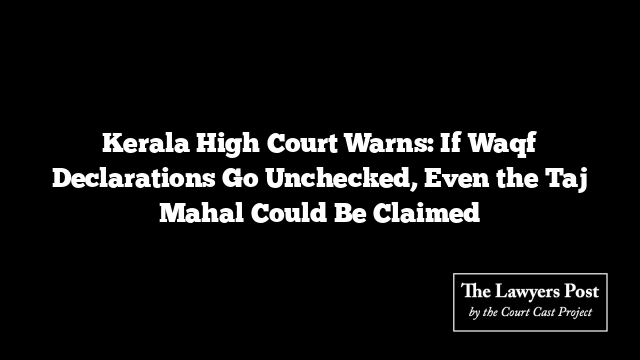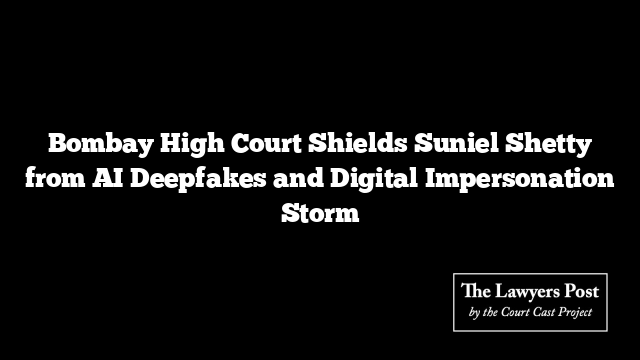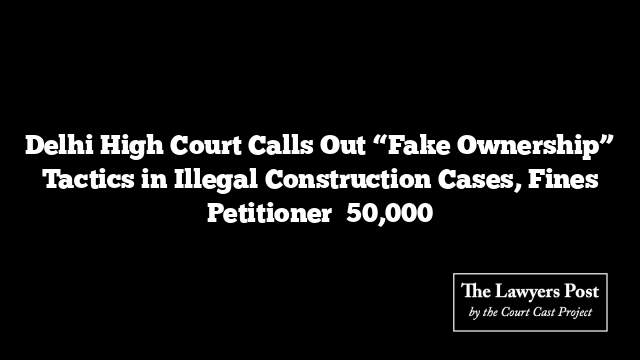The Kerala High Court has drawn a sharp constitutional line, warning that if arbitrary waqf declarations are allowed to pass unchecked, tomorrow even the Taj Mahal, the Red Fort, or the legislature buildings could be claimed as waqf property.
Delivering a scathing verdict in the Munambam land dispute, a Division Bench of Justices S.A. Dharmadhikari and Syam Kumar V.M. cautioned that granting judicial legitimacy to baseless waqf claims would set a perilous precedent. “If judicial seal of approval is placed on such an arbitrary declaration,” the Bench remarked, “any random building — from the Taj Mahal to this Court’s own building — could be painted with the brush of waqf property.”
The Court’s concern went beyond rhetoric. It warned that such unchecked powers would endanger constitutionally protected rights — the right to property under Article 300A, the right to trade and profession under Article 19, and even the right to life and livelihood under Article 21. “A secular nation cannot allow fanciful assertions to override due process,” the Bench declared, adding that recognising unaccountable power in the hands of Waqf Boards would trample citizens’ fundamental guarantees.
The dispute stems from land in Munambam, once 404 acres and now reduced to about 135 acres due to sea erosion. The land, originally gifted in 1950 by Siddique Sait to Farook College, was home to several residents who continued to occupy it. Over the years, parts of the property were sold to these occupants — none of the sale deeds described the land as waqf property.
Nearly seven decades later, in 2019, the Kerala Waqf Board (KWB) registered the land as waqf property, effectively nullifying all previous transactions. This sparked widespread protests from nearly 600 families. The State government then formed an inquiry commission led by retired Justice C.N. Ramachandran Nair to investigate — a move that was later quashed by a single-judge Bench, prompting the government’s appeal before the Division Bench.
The Division Bench found that the original deed gifting the land to Farook Management was just that — a gift deed, not a waqf deed. The Waqf Board, it noted, appeared to have relied solely on the title of the document without applying legal criteria or providing reasons. The Court underscored that the Board acted nearly seventy years late, without hearing affected parties, and amid a sharp rise in the land’s market value — factors that, in the Court’s words, “smack of a foul action lacking bonafides.”
Calling out the Waqf Board’s “palpable illegality and blatant arbitrariness,” the Court said the move appeared to be “a desperate attempt to wrest control, management, and ownership of the property.”
While the petitioners argued that only a Waqf Tribunal had jurisdiction, the Court held that constitutional courts retain the authority to examine whether the statutory process for declaring a waqf has been duly followed. “The Court can and must scrutinise whether the procedure — including a proper survey and inquiry — was sincerely observed, given that such declarations can displace citizens of their fundamental rights,” the Bench stated.
Ultimately, the Division Bench reinstated the government’s inquiry commission, though it stopped short of invalidating the Waqf Board’s declaration, limiting its ruling to the scope of the State’s appeal.
In essence, the Court’s message was clear: property cannot be painted over with divine authority without legal foundation — not in a constitutional democracy, and certainly not under the watch of the judiciary.





